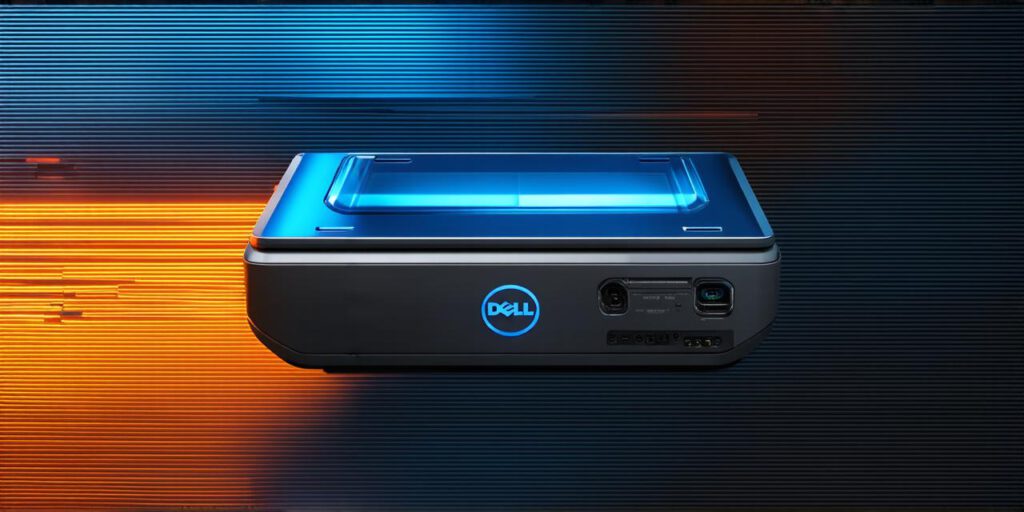Dell Technologies is a multinational information technology company that was founded in 1938 by Michael Dell. But who were the key individuals behind the creation and development of this industry-leading computer manufacturer? In this comprehensive guide, we will delve into the history of Dell Computers and explore the contributions of its pioneers.
From Humble Beginnings: The Early Years of Dell
Michael Dell was born in 1945 in Houston, Texas. He showed an early aptitude for electronics and mathematics, and by the time he was 16 years old, he had already built his first computer. After graduating from Northwood High School in 1963, Dell enrolled at the University of Texas at Austin, where he earned a degree in electrical engineering.
However, it wasn’t until Dell returned home to Houston after completing his education that he truly began to develop a passion for computing. He started by selling computer components from his bedroom, and by 1976, he had opened his first store in Austin, Texas. In the early years of the company, Dell focused on building custom computers for businesses and individuals.
The Rise of Dell: A Look at Key Innovations
One of the key factors that propelled Dell to prominence was its ability to innovate and adapt to changing market conditions. In 1980, Dell introduced its first personal computer, the Altair 8800, which quickly gained a reputation for being fast, reliable, and easy to use. This success paved the way for further innovation in the PC industry, as Dell continued to develop new models that were smaller, faster, and more affordable than their predecessors.
ʾ
One of the most significant milestones in Dell’s history came in 1984 when it introduced the first IBM-compatible personal computer, the IBM PC. This computer quickly became a standard for the industry, and its success helped to establish Dell as one of the leading players in the PC market.
Another key innovation that contributed to Dell’s rise was its development of the “Dell Direct Model” in 1993. This model allowed customers to configure their own computers from a catalog of options, which helped to streamline the ordering process and improve customer satisfaction. In addition, Dell began to focus on developing enterprise-level solutions for businesses, including servers, storage systems, and networking equipment.
The Impact of Michael Dell on the Industry
Throughout its history, Dell has been guided by a strong commitment to innovation and excellence. Michael Dell’s leadership has played a crucial role in shaping the company’s identity and values. In an interview with Forbes magazine in 2001, Dell said: “We don’t innovate because we have some grand plan. We innovate because we have to. We innovate because we see opportunities.”
Dell’s approach to innovation has helped the company stay ahead of the competition and remain a dominant force in the PC industry. In addition, Dell has been recognized for its commitment to sustainability and corporate social responsibility. The company has set ambitious goals for reducing its carbon footprint and increasing energy efficiency across its operations.
The Legacy of Dell Computers: A Look at Key Figures
While Michael Dell is undoubtedly the most well-known figure associated with Dell Computers, there have been many other individuals who have played key roles in shaping the company’s history and guiding its success. Some of these individuals include:
- Frank Romero: Romero was Dell’s first employee and served as the company’s chief financial officer from 1978 to 1985. He played a crucial role in helping the company navigate the early years of rapid growth.
- Tom Meredith: Meredith was the CEO of Dell from 1989 to 1993, and he oversaw the introduction of the IBM-compatible personal computer, which helped to establish Dell as a leading player in the PC market.
- John Hagel: Hagel was the CEO of Deloitte Consulting, where he worked closely with Dell on developing enterprise solutions for businesses. He is known for his expertise in innovation and emerging technologies.
- Kevin Rollins: Rollins was the CEO of Dell from 2001 to 2006, and he helped to expand the company’s global presence and diversify its product offerings beyond PCs.
Case Studies: Real-Life Examples of Dell Computers in Action
One of the best ways to understand the impact of Dell Computers is to look at real-life examples of how the company’s products have been used by businesses and individuals around the world. Here are a few case studies that illustrate the versatility and power of Dell’s solutions:
- NASA: NASA has used Dell computers for decades, and the company has played a crucial role in helping the agency develop and implement its mission to explore space. In 2009, NASA selected Dell as one of the key partners for the development of the Mars Science Laboratory mission, which included the Curiosity rover.
- Walmart: Walmart is another major customer of Dell Computers. The company uses Dell’s enterprise-level servers and storage systems to manage its vast global operations, which include more than 10,500 stores in 28 countries.
- University of Cambridge: The University of Cambridge has partnered with Dell for many years to provide its students and faculty with cutting-edge computing resources. In 2014, the university opened a new state-of-the-art research facility that featured more than 5,000 Dell servers, which helped the university to process huge amounts of data and accelerate its research efforts.
- Small Business Owners: For many small business owners, Dell Computers are an essential tool for managing their operations and staying competitive in a fast-paced marketplace. From accounting software to customer relationship management (CRM) tools, Dell offers a wide range of solutions that help businesses streamline their workflows and improve their bottom line.
FAQs: Answering Common Questions about Dell Computers
What is the history of Dell Computers?
Dell Computers was founded in 1938 by Michael Dell. The company started out building custom computers for businesses and individuals, but it quickly gained a reputation for innovation and adaptability as it introduced new models that were faster, more affordable, and easier to use than their predecessors.
Other key figures include Frank Romero, Tom Meredith, John Hagel, Kevin Rollins, and many others who have played critical roles in shaping the company’s identity and values over the years.
What industries use Dell Computers?
Dell Computers are used by a wide range of industries, including healthcare, finance, government, education, and small business. The company offers a diverse product portfolio that includes servers, storage systems, desktops, laptops, and other solutions that help businesses and individuals manage their operations more effectively and efficiently.
How has Dell Computers impacted the PC industry?


